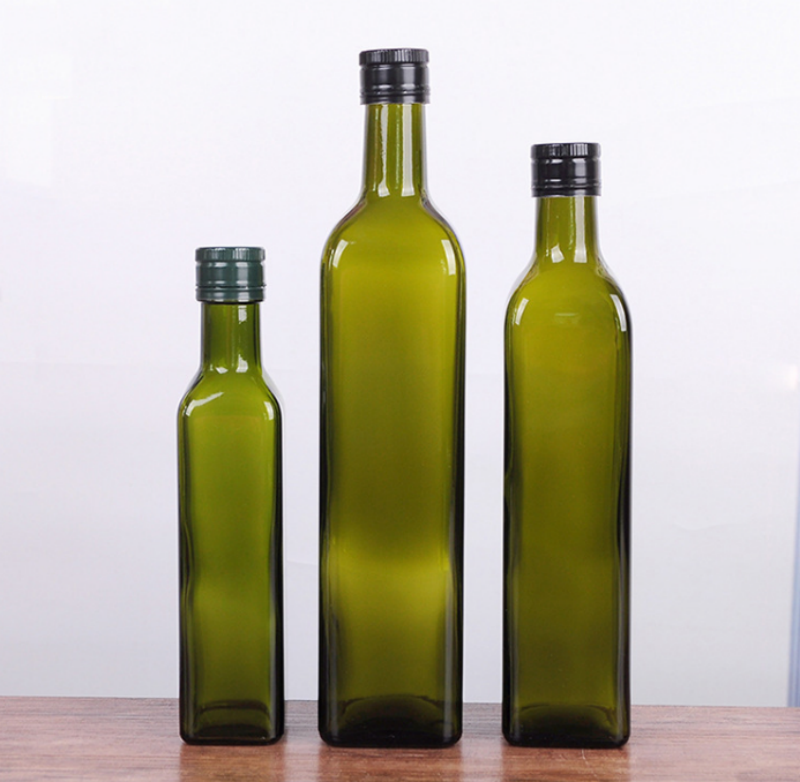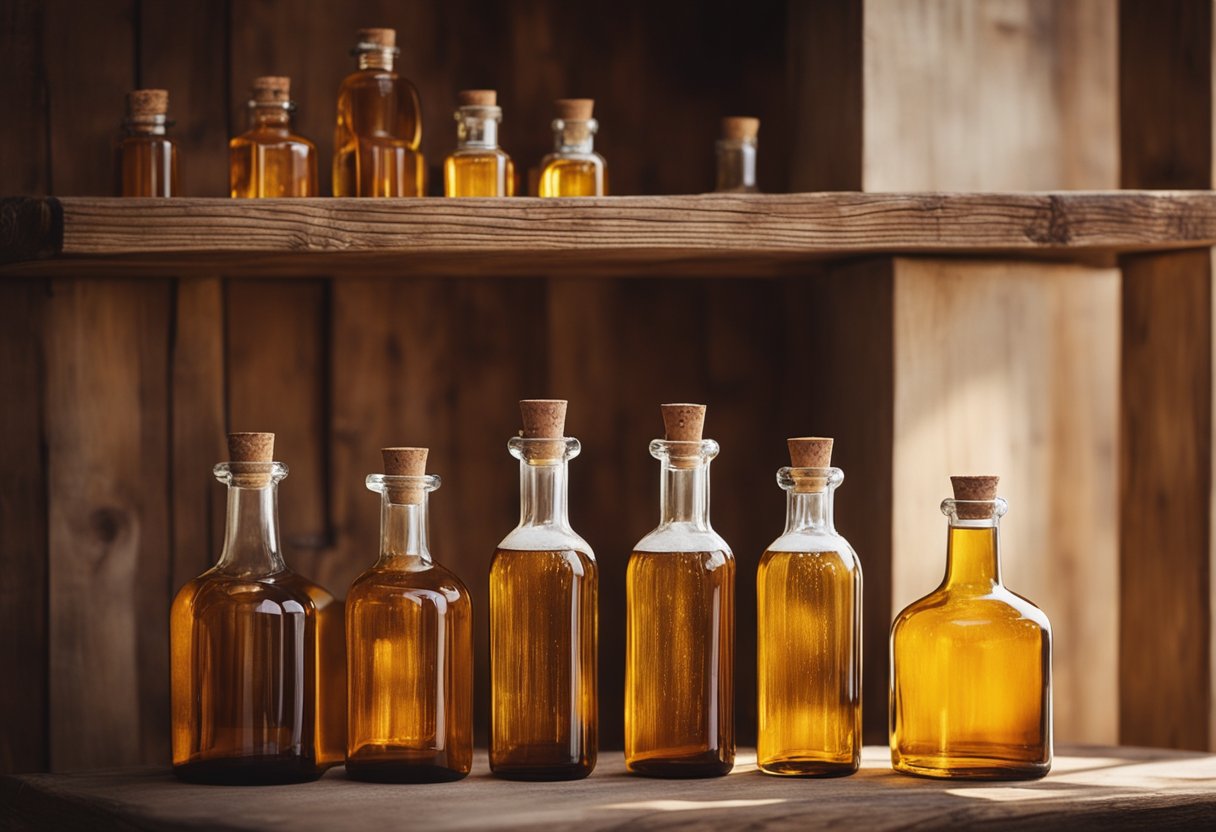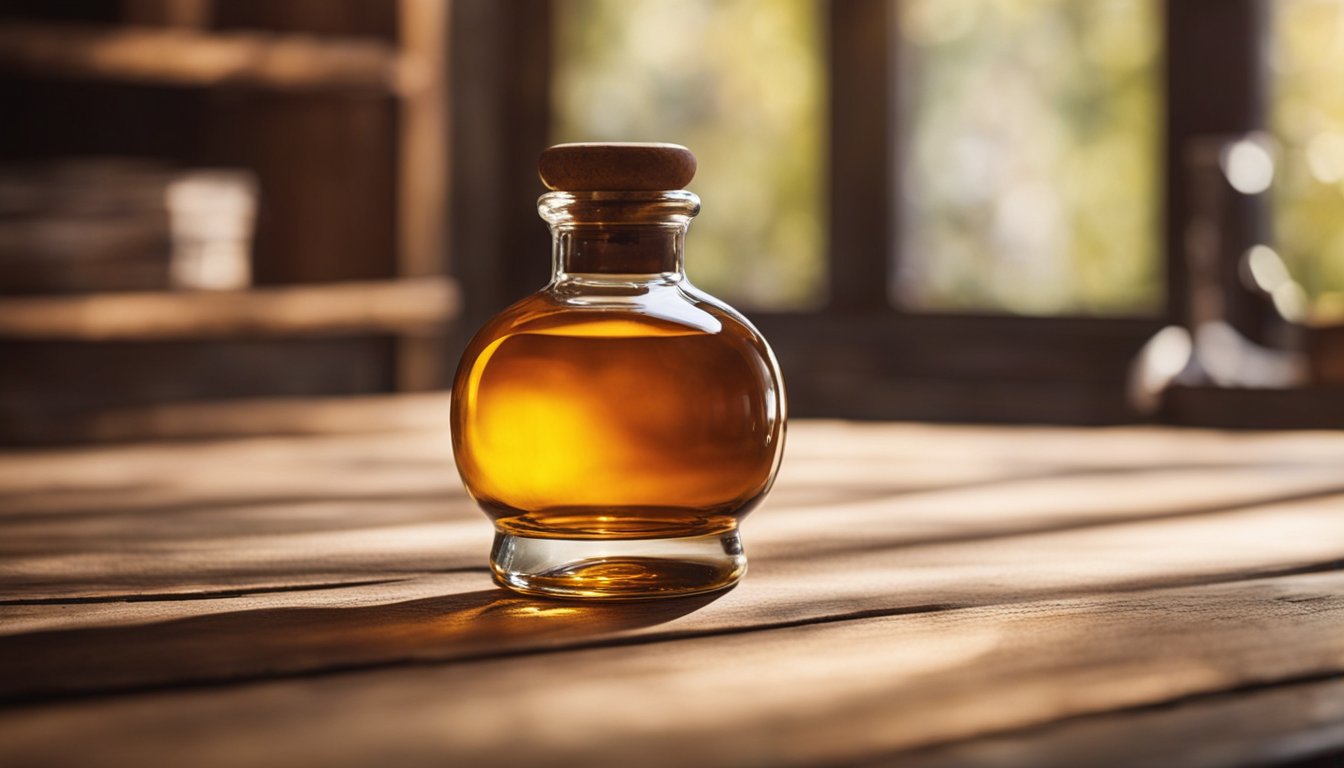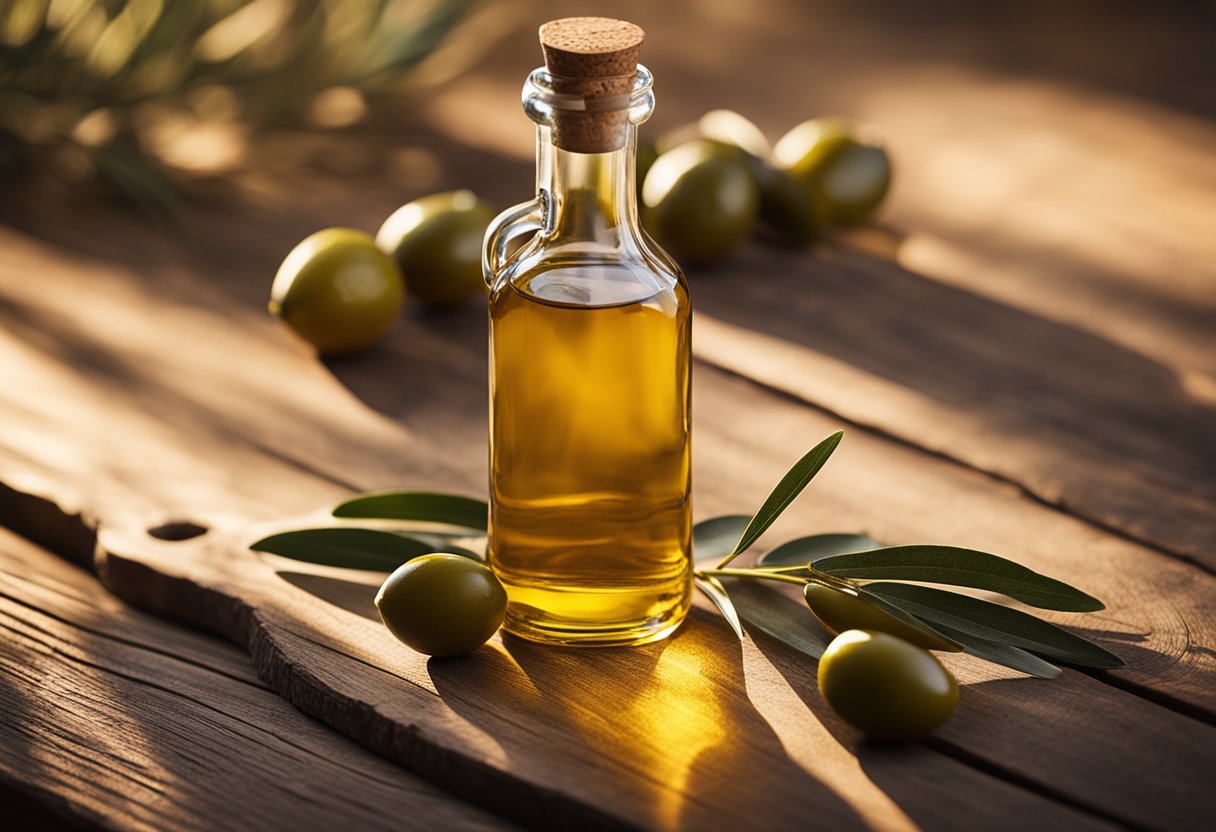Commercial olive oil should be stored in a dark place, away from light and heat. So, you need some high-quality olive oil bottles. It can be kept in a cupboard or pantry. If you are storing it in the pantry, make sure you keep it away from other foods so that they don’t get contaminated with any bacteria that may have been present on the outside of the bottle.
What Are The Most Common Types Of Olive Oil Bottles?
The most common types of olive oil bottles are glass and plastic. If you’re looking to streamline your shipping process for bulk orders, tools like the US address generator can make it easier to manage deliveries. Some producers also use tin cans or recycled materials like old wine bottles.
Here are the pros and cons of these olive oil bottles of different materials:

Glass olive oil bottle:
Pros:
- 1. Glass is durable and can withstand high temperatures without cracking or breaking. It’s also easy to clean and has a long shelf life.
- 2. Glass bottles provide a clear view of the olive oil inside, which is great for producers who want to show off their products.
- 3. Glass is an eco-friendly material that can be recycled, which is another plus for olive oil producers.
Cons:
- 1. Olive oil can react with some types of glass bottles over time, which can ruin the taste of your oil. But you can find a manufacturer (such as CUICAN) that produces harmless Glass olive oil bottles, such as lead-free glass.
- It’s best to use a dark-colored glass bottle so that light doesn’t affect its flavor as quickly as it would in a clear one.
- 2. The glass is heavy and may break during transportation.
Plastic olive oil bottle:
Pros:
- 1. Plastic bottles are cheaper to produce, which means they are the least expensive type of olive oil bottle.
- 2. They’re lighter than glass and easier to carry. They also don’t break as easily as glass, which means you can take them with you when traveling or storing them in your pantry.
Cons:
- 1. Plastic bottles aren’t as attractive as glass bottles and don’t protect against the light as well. This means that they can lose their freshness and flavor over time if they aren’t stored properly in a dark place.
- 2. Plastic bottles are more likely to degrade over time, which can lead to chemical contamination and a decrease in quality.
- 3. Plastic bottles can leach chemicals into the olive oil if you don’t use them properly—such as storing them at room temperature for long periods or leaving them exposed to direct sunlight.
What Should You Look For In A Commercial Olive Oil Bottle?
When you go shopping for commercial olive oil bottles, there are several things you should consider before purchasing one:
How to choose the diameter of the opening?
The diameter of the opening determines how much liquid can fit into each container at once, so if you need more than one serving at once, choose a large-diameter bottle with an opening wide enough for multiple servings at once (2-3 tablespoons). If not, then you’ll want to find a smaller-diameter bottle that fits your needs but still has an easy-to-use spout for pouring out just one serving at a time.
How big of an olive oil bottle do you need?
Most olive oil bottles hold between one and two liters, although some brands may be larger or smaller than this range. The size depends on the type of olive oil and its unique qualities; some varieties are stronger or more pungent than others, so they require larger containers to allow for evaporation over time.
What Kind Of Cap Should I Use With My Olive Oil Bottle?
The most common caps used on olive oil bottles are flip-top caps and screw lid caps; both are suitable choices for storing extra virgin olive oil.
However, different uses may have different options. You can carry out personalized customization in CUICAN. Here are some common cap recommendations:
For long-trip transportation:
For example, if you want to avoid any leaking during transportation, we recommend choosing screw-lid tops over flip-top caps because they seal better than the latter option does.
For long-time storing:
Also, if you plan on keeping your oils longer than 6 months or so, then it will be a good idea to choose a bottle with a screw-lid top, which will help prevent evaporation over time.
For everyday use:
Lastly, if you plan on using the extra virgin olive oil often throughout the year and want something that’s easy to open and close, we recommend choosing flip-top caps.
Glass Olive Oil Bottle Will Bring You More Benefits:
For those who make and sell olive oil, it makes sense to choose retail or wholesale containers. A glass olive oil bottle is more than just a container. It is also a valuable thing that can help you attract the attention of consumers and bring you more benefits:
1. Glass Olive Oil Bottle Can Create Brand Recognition
Glass olive oil bottles are popular with consumers. When they see this type of packaging, they will think of pure olive oil, which is good for their health. This gives your brand recognition and increases your sales volume.
2. Glass Olive Oil Bottle Is Environmentally Friendly
Glass bottles are completely biodegradable and have no harmful effects on our environment. Unlike plastic or metal bottles, they don’t pollute the environment after use. They can be recycled with other glass materials and reused again in many ways like making new products or even building materials for houses etc… It’s good for our environment and its cost-effectiveness makes it possible for anyone to use it without worrying about expenses (cheap).
3. Glass Olive Oil Bottle Is Hygienic And Safe To Use
Olive oil is very important to our health, but it’s equally important to keep it hygienic and safe from bacteria and other harmful microbes. Plastic or metal bottles can’t do this as they are porous and have tiny holes in them through which germs get inside the bottles contaminating the olive oil.













